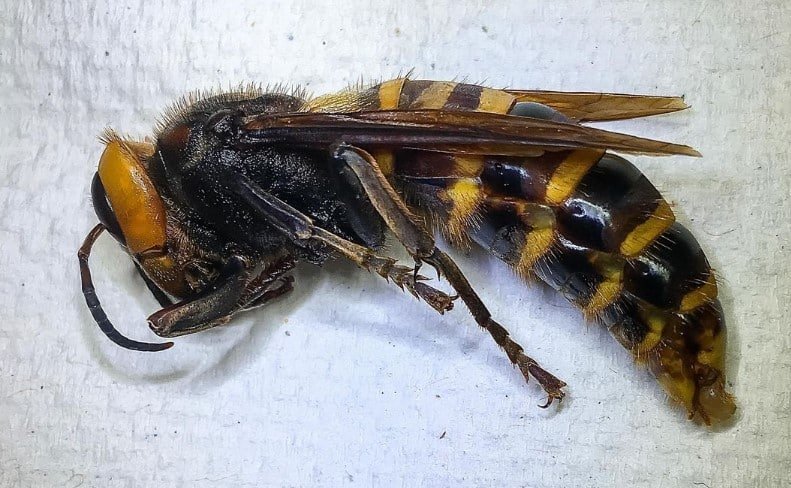
Scientists Capture First Murder Hornet in Washington State
by Nora McGreevy/Smithsonianmag.com
The Washington State Department of Agriculture trapped its first Asian giant hornet in July near Birch Bay, the agency announced in a statement. As their name implies, the insects are native to Asia, but they made headlines this year when they were first spotted in one Washington county.
Researchers have spent the last few months setting traps around the state in an attempt to curtail the invasive species’ spread. This hornet was discovered in a WSDA trap on July 14 and identified on July 29, per the statement.
Just five hornets have been officially sighted in the state, and this one is the first hornet to be trapped by scientists, report Harmeet Kaur and Konstantin Toropin for CNN.
“This is encouraging because it means we know that the traps work,” says Sven Spichiger, an entomologist with the WSDA, in the statement. “But it also means we have work to do.”

Carol graduated from Riverside White Cross School of Nursing in Columbus, Ohio and received her diploma as a registered nurse. She attended Bowling Green State University where she received a Bachelor of Arts Degree in History and Literature. She attended the University of Toledo, College of Nursing, and received a Master’s of Nursing Science Degree as an Educator.
She has traveled extensively, is a photographer, and writes on medical issues. Carol has three children RJ, Katherine, and Stephen – one daughter-in-law; Katie – two granddaughters; Isabella Marianna and Zoe Olivia – and one grandson, Alexander Paul. She also shares her life with her husband Gordon Duff, many cats, and two rescues.
ATTENTION READERS
We See The World From All Sides and Want YOU To Be Fully InformedIn fact, intentional disinformation is a disgraceful scourge in media today. So to assuage any possible errant incorrect information posted herein, we strongly encourage you to seek corroboration from other non-VT sources before forming an educated opinion.
About VT - Policies & Disclosures - Comment Policy




As in Asia, bee keepers can reduce the size of apuratures to the apiaries and deny access to the larger Murder Hornets. There aren’t too many wild bees anyway thanks to Monsanto. Not a problem if managed correctly. Monsanto has killed more bees than Murder Hornets ever will by an enormous factor.
Comments are closed.